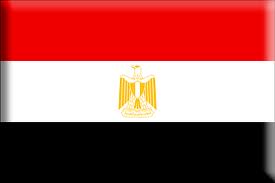 Elizabeth Iskander writes for EA:
Elizabeth Iskander writes for EA:
Snapshots from Sunday's first round of voting for Parliament...
Contrary to the expectations of analysts, the al-Wafd party only won two seats in Sunday’s first round of elections for the Egyptian Magles al-Sha’ab. While the Egyptian people are unsurprised by the results, al-Wafd president al-Sayed al-Badawy, is clearly furious. This suggests that there may have at least been an unofficial understanding before the vote that al-Wafd would secure increased parliamentary representation.
Al-Badawy was quoted by al-Youm al-Saba’ website: “We were relying on President Mubarak’s promise that the ensuring the fairness of the Magles al-Sha’ab election would be his personal responsibility. Unfortunately it was the National Democratic Party (NDP) candidates and supporters that violated this promise.” He added, “If we had known the elections would play out like this, we would not have pushed our candidates into a confrontation with such thugs.”
The NDP obviously decided that it no longer needed friends in order to influence people, as it crushed all opposition that had decided not to boycott the election. This shift in the government’s attitude was manifest before the elections in its reactions to long-time government supporter Pope Shenouda, the head of Egypt’s Coptic Church.
In a dramatic turn of events, the NDP failed to accommodate the Pope by leaving some of the Church’s favoured Coptic candidates off its slate. There were rumours on Election Day that the patriarch gave his vote to al-Wafd, rather than the NDP. Whether true or not, the circulation of the story points to the sudden and rapid cooling of relations between Pope and President.
The NDP clearly decided to prevent a repeat of 2005, whatever the cost. After a slight freeing up of elections led to 88 seats (out of more than 500) for the Muslim Brotherhood in the last Parliament, the Egyptian Government felt no obligation to let this happen again, just for the sake of presenting a veneer of democracy to the Americans.
This time round, the relatively freer press and objective reporting seen five years ago was gone. Also gone was the slight opening for opposition party campaigns in 2005. Instead, there were larger than expected series of arrests of Muslim Brotherhood candidates. Even the legal opposition parties did not escape the arrest and harassment of their supporters.
The priority now is next year’s Presidential election, and the NDP seems to have achieved its objective. According to Article 76 of the Constitution, candidates for the Presidency must be high-ranking members of a legally-registered political party that has been established for at least five years and holds at least 3% of the seats in both the Magles al-Sha’ab and the Magles al-Shura. Alternatively, a candidate may stand if they are supported by at least 250 elected members of the Magles al-Sha’ab, the Magles al-Shura, and Municipal Councils in governorates.
This door for a challenger to President Hosni Mubarak or, if he declines to run, his son Gamal now seems closed. The failure of the opposition parties to win seats and the withdrawal of al-Wafd from this Sunday’s second round of elections [Editor's Note: The Muslim Brotherhood has also pulled out], comes on top of only eight victories for opposition and independent candidate in the first round.